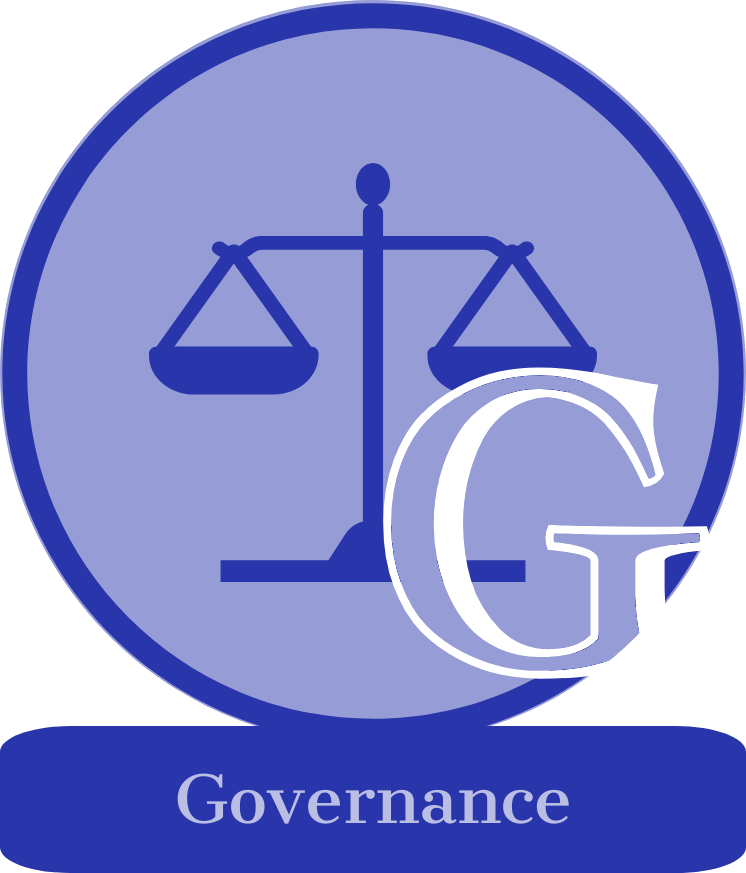.png)
With rules and regulations constantly evolving, DALBAR’s expertise aids firms, advisors and plan sponsors in achieving ERISA compliance through well-documented audits, validations and certifications.
408(g) Audit
Fiduciary Advisors who plan to use an eligible investment advice arrangement will need to be audited by an independent auditor in order to provide investment advice to qualified plan participants.
Rollover Review
The DOL has issued new rules, which will make recommending rollovers a fiduciary act! Firms who provide distribution advice may do so under a new exemption, but will no doubt have challenges ahead.
Computer Model Certification
Firms that seek to comply with advice regulations for IRAs and 401(k) participants will need the required credentials.
QDIA Validation
The QDIA validation establishes a standard for evaluating QDIAs for compliance with regulatory requirements and supports the process of selection and monitoring of QDIAs required of ERISA plan fiduciaries.
Certification of Reasonableness
Comply with ERISA 408(b)(2) in proving retirement plan fees are reasonable and the plan is a fair value.
3(38) Certification
Investment managers are provided with a powerful combination of sales tool and compliance disclosures to satisfy the requirements of ERISA section 3(38).

408(g) Audits
What are 408g Audits?
408g audits differ greatly from all other audits (such as financial audits, FINRA audits,
401(k) audits, etc.) in purpose, nature and scope.
The purpose of 408g audit is to establish that a fiduciary adviser is in compliance with ERISA section 408(g) (part 2550.408g of Title 29 of the Code of Federal Regulations).
What are the Requirements of a 408g Audit?
Fiduciary Advisers are required to submit to an annual audit that consists of the assessments outlined below and require compliance with the Department of Labor requirements as described in the “Adviser Selection & Monitoring Guidelines”. These audit guidelines are only applicable when preceded by satisfactory adviser selection and monitoring processes.
Assessments Required for Adviser Audit:
1) RECORDS RETENTION: Adviser must show that adequate records are maintained per PPA.
2) LEVEL COMPENSATION: Adviser must disclose sources and amounts of compensation to establish that it was not derived from advice given.
3) RECOMMENDATIONS UNBIASED: Records are examined to determine that adviser recommendations are in line with investment mix of benchmark advisers.
4) DISCLOSURES MADE: A representative sample of participants who use the adviser are asked if they received required disclosures.
5) COMPENSATION IS REASONABLE: Compensation level of adviser is compared on a per participant basis to benchmark advisers.
Who performs 408g Audits?
Subsection 408(g)(5) requires that the auditor be independent and be able to demonstrate expertise and proficiency in ERISA and the ability to conduct the audit in writing. An auditor is considered to be independent if he has no material contractual relationship, is not related to the fiduciary adviser or to any person providing investment options under the plan. Consequently, affiliated companies may not audit each other nor can a Fiduciary Adviser use an auditor over which he has control.
How is the Audit performed?
The audit consists of the following steps:
- Fiduciary Adviser initiates the audit through a disclosure questionnaire that is reviewed for compliance with 408(g).
- After review and acceptance of the disclosure questionnaire initiates a request for documents, including eligible investment advice arrangements (EIAA), disclosure documents, tools used in advice delivery, records relating to advice delivery and complete list of plans and participants receiving investment advice.
- Documents are examined upon receipt for compliance with 408(g) using the auditor’s checklist and compliance tested by contacting a sample of plans and participants.
- Results are analyzed and two documents are produced: the 408g Audit Report and the Management Letter. (Samples are available)
- Audit Report contains the findings that are reviewed by the fiduciary adviser and amended if necessary then delivered to adviser and plan sponsors.
- Management Letter contains observations and recommendations and is delivered only to the fiduciary adviser.
- Both documents are reviewed with the fiduciary adviser after which the 408g Audit Report is sent to all of plans with whom the fiduciary adviser has an EIAA.
What is the Cost of a 408g Audit?
Costs are based on the number of advisers and associates in a firm providing advice
and the complexity of the audit.
Fees range from $2,500 for a small independent adviser to $150,000 for a large phone center operation.

ERISA 3(38) Certification
What is ERISA 3(38) Certification Program?
The 3(38) Certification Program provides investment managers with a powerful combination of sales tool and compliance disclosures to satisfy the requirements of ERISA section 3(38). Certification enables investment managers to use client testimonials to advertise and attract new assets.
- 3(38) Certification Program Description
- Application
- Part A
- Part B
Do you have what it takes to be a great 3(38)?
RIAs can claim to be 3(38)s by putting it on a business card but it is up to the plan fiduciary to make sure that there is substance behind the business card:
- Competent: Experience, qualifications and knowledge
- Superior background and performance
- Reasonable fiduciary arrangement
- Financial strength to take on the responsibilities
Without solid answers, the career as a 3(38) will not last very long.
Complete the Ultimate 3(38) Questionnaire for an evaluation of your prospects for success as a great 3(38).
What are the Benefits of Participation?
Gives Certificants the ability to:
- Use the client testimonials in marketing and promotional materials:
- Trust – How many of your clients really trust your firm?
- Results – How many believe their investments performed as expected?
- Advice – How many respect the quality of investment advice from your firm?
- Service – What percentage of your clients believe you deliver great service?
- Support due diligence required by ERISA
- Trust – How many of your clients really trust your firm?
What are the Deliverables?
- Personalized Credential document
- Certificate of Achievement
- Client feedback from evaluations performed
What are the Prerequisites?
Financial Professional must:
- Have a minimum of 5 years experience in the field of financial advice.
- Be a full time financial professional
- Pass a background check.
What is the Certification Process?
The following steps are required to obtain the DALBAR rating:
- Candidate completes application detailing qualifications and experience.
- conducts a background check of the regulatory record of the candidate to determine if the individual qualifies for certification in compliance with SEC rules.
- reviews the client agreement to determine if it services and terms are consistent with ERISA 3(38) and that document is understandable without bias against client.
- evaluates investment theory to determine if it is generally accepted.
- reviews due diligence and investment performance reports to determine if basic tool are available to perform as 3(38) manager.
- Candidate provides with a complete list of clients.
- verifies completeness and evaluates a representative sample of clients to determine if ethical and quality standards have been met.
- issues certification.
What is the Timing and Cost?
Timing:
Certifications take approximately 60 days. Certifications are renewable annually.
Cost:
The cost for certification of the firm is $3,500 for the first time, plus $275 for each IAR. The cost to renew is $2,750.
DALBAR Registered Fiduciaries (RFTM) are able to upgrade for the renewal price of $2,750.

Computer Model Certification
What is Computer Model Certification Program?
The Computer Model Certification provides firms that seek to comply with advice regulations for IRAs and 401(k) participants with the required credentials to comply with the regulations. Certificants receive a distinctive mark of quality in the form of the Seal that differentiates the model from the hundreds of other that are non-compliant.
What are the Benefits of Participation?
Gives Certificants the ability to:
- Leverage the Rating in marketing and promotional materials.
- Attract new clients.
- Receive a report on the health of the existing client base and current satisfaction to ensure minimal attrition.
What are the Deliverables?
- Report of the analysis supporting the Certification
- Certificate of Achievement
- Pointers on how to best promote Rating
What are the Prerequisites?
Financial Professional must:
- Have a minimum of 5 years experience in the field of financial advice.
- Be a full time financial professional with a minimum of 100 active clients and at least 25 clients with tenure of 5+ years.
- Pass a background check.
What is the Certification Process?
The following steps are required to obtain the rating:
- Candidate completes application detailing qualifications and experience.
- conducts a background check of the regulatory record of the candidate to determine if the individual qualifies for certification in compliance with SEC rules.
- evaluates investment theory to determine if it is generally accepted
- reviews investment performance and fees for reasonableness
- tests the computer model using multiple scenarios for reasonableness and compliance with regulations.
- Candidate provides with a complete list of clients.
- verifies completeness and surveys a representative sample of clients to determine if ethical and quality standards have been met.
- issues certification.
What is the Timing and Cost?
Timing:
It depends on the scope and nature of the computer model. Certifications are renewable annually.
Cost:
The cost for certification depends on the scope and nature of the computer model and the uses to which the model will be put. Multiple versions are priced on request.

Qualified Default Investment Alternative (QDIA) Validation
What is the Objective of QDIA Validation?
The QDIA Validation establishes a standard for evaluating QDIAs for compliance with regulatory requirements and supports the process of selection and monitoring of QDIAs required of ERISA plan fiduciaries.
The standards of the QDIA Validation permit plan fiduciaries and advisers to use consistent metrics to compare the variety of QDIA alternatives with very different styles and methods.
uses these standards to evaluate QDIAs in any of their various forms and issues a detailed report of findings to QDIA providers, advisers and plan sponsors.
Why is QDIA Validation Necessary?
Interwoven throughout the QDIA regulations is the emphasis on making prudent selections and ongoing monitoring in order to obtain protection from fiduciary liability. Fiduciaries are exposed to prohibited transaction penalties should they fail to meet the requirements. On the other hand, relief from fiduciary liability offered by QDIAs through federal law is the best protection available.
QDIAs are expected to soon become the dominant investment choice in employer sponsored retirement plans.
Program Outline
In the absence of detailed standards from regulators that defines what prudent selection and monitoring is required, ambiguity has existed about what constitutes compliance with the selection and monitoring requirement.
In response to this need to demonstrate procedural prudence has developed the QDIA Validation standards.
What are the Benefits of QDIA Validation?
QDIA Validation provides plan sponsors and other fiduciaries with the process to demonstrate procedural prudence that can be examined by regulators and can be used as defense in the event of litigation.
QDIA Validation provides advisers with a meaningful tool to select and recommend QDIAs to clients. Advisers may review previously issued validation reports or may commission customized evaluations.
QDIA Validation provides firms that offer QDIAs with the ability to make necessary adjustments to pre-certify their QDIA offerings. Pre-certified QDIAs add value to the firm’s offerings by simplifying the procedural prudence required of plan sponsors and fiduciaries.
What is the Scope of QDIA Validation?
The QDIA Validation may be applied to all QDIA alternatives referenced in the
Employee Retirement Income Security Act of 1974, as amended [ERISA] Section
404(c)(5) and associated regulations.
These include:
Three forms of investment:
- Funds
- Annuities
- Computer models
And five investment alternatives:
- Age based
- Risk based
- Managed account
- Short term investment
- Grandfathered investment
What is the Method and Time-frame of QDIA Validation?
QDIA Validation can be performed on a plan specific basis or an investment specific basis.
Plan specific QDIA Validation engagements are between and a plan sponsor or other fiduciary. This requires collecting information about the plan and employee demographic differences as well as details concerning the QDIA(s) under consideration. This information is evaluated against the QDIA Validation standards and a confidential report is issued to the plan sponsor or fiduciary.
This process requires four to eight weeks after an established start date. The start date is based on all required information being available in good order and mutual acceptance of the engagement.
Investment specific QDIA Validation engagements are between and QDIA providers or advisers. Details of each investment contemplated for use as a QDIA must be provided as well as the availability of an individual to answer questions and probes. Each investment is then tested against the QDIA Validation standards and a preliminary confidential report is issued for review.
Providers have an opportunity to correct deficiencies and will amend the Validation report as appropriate. After successful validation issues an opinion and makes QDIA Validation report public on its Website and proactively to the press.
This process requires four to twelve weeks from a start date, depending on the complexity and number of investments involved. The start date is based on all required information being available in good order and mutual acceptance of the engagement.
What is the Cost of QDIA Validation?
There is a minimum engagement fee of $5,000, which will typically cover one plan or three similar investments. Estimates are provided before the start of an engagement.
The minimum requirement may be waived for services added to an initial engagement and for annual updates of the validation.
Rollover Review
The Department of Labor has issued new rules, which will make recommending rollovers a fiduciary act! Financial Firms who provide distribution advice may do so under a new exemption, but will no doubt have challenges ahead of them. Find out how you will be affected...
DALBAR Can Help You
Financial Firms come in all shapes and sizes but no matter the make-up, DALBAR has an option that will fit.
Do-it-Yourself
- Training (content): Use DALBAR’s Retrospective Review Checklist and other outside references to create training for reps/advisors
- Training (operational): Distribute training materials, administer and test internally
- Compliance Training: Retrospective Review Checklist and Reports
- Retrospective Review: DALBAR Checklist and Reports
- Tech & Methodology Review: Vet internally


Do-it-Together
- Training (content): Customize DALBAR’s Rollover Training Modules.
- Training (operational): Accessible through DALBAR’s online, interactive portal. Administer and test internally
- Compliance Training: Customize DALBAR compliance dept. training modules
- Retrospective Review: Consult and design internal review with DALBAR
- Tech & Methodology Review: Private Opinion Letter
Do-it-for-Me
- Training (content): DALBAR’s Rollover Training Modules
- Training (operational): Accessible through DALBAR’s online, interactive portal. Includes online testing, usage and score reporting.
- Compliance Training: DALBAR compliance dept. training modules
- Retrospective Review: Conducted by DALBAR as independent 3rd party
- Tech & Methodology Review: Public Certification

The First Step...
Our Retrospective Review Checklist not only provides sample checklists and reports but will provide you with methods for assessing preferences and priorities, giving all the tools you need to screen for reasonableness.
The Second Step...
Get the knowledge you need when you learn best through the DALBAR and Retirement Learning Center's online platform, i-LearnERISA. Register for courses that help you understand the new rollover regulations.

News & Resources
DALBAR's Certification of Reasonableness
ERISA 408(b)(2) regulations requires that plan services be:
'‘…[N]ecessary for the establishment or operation of the plan and no more than reasonable compensation is paid therefor.”
DALBAR's Certification of Reasonableness:
- Demonstrates benefits of the plan
- Proves program is a fair value
- Meets ERISA and other regulatory requirements
- Shows prudent business practices
- Avoids potential conflicts of interest
- Reduces exposure to litigation
DALBAR's Certification of Reasonableness Evaluates:
- Plan Success -- Forecast of plan’s ability of fund participants’ retirement
- Comparability of Cost -- Assess costs against prevailing market rates
- Target PriceTM -- Calculation of what a fair price should be
- Necessity of Plan Services -- Assessment required by ERISA
- Recommendations -- If and when problems are uncovered
- Judgement of Reasonableness -- Basis for expert opinion
- Opinion Letter – Expert opinion regarding the plan
Certifying your Results
- Documents higher standard of care
- Evaluates service provider disclosures
- Provides clear concise summary
- Reviews all plan components
- Outlines plan improvements
- Typically paid as a plan expense
DALBAR will evaluate and when successful will provide certification of compliance with ERISA 408(b)(2) for clients of Professional based on profiles following fee, subject to acceptance by DALBAR:
Standard Pricing for Fee Disclosure Certification
Timing and Cost:
- For plans with assets of less than 2.5 million:$375
- For plans with assets between $2.5 million and $100 million:0.015%
- For plans with assets of more than $100 million:$15,000
Examples:
- Cost of a plan with:
- $1.5 million....$375
- $2.5 million....$375
- $5.0 million....$750
- $25 million ....$3,750
- Fees are payable when profile is submitted. Fees are subject to change.
The Certificate of Reasonableness typically takes 4-6 weeks per plan.
ESG Plan Certification
ESG Retirement Plan Certification measures how actively an organization applies the principles of ESG (Environmental, Social and Governance) to their retirement plan.
Overarching Goals of Certification
Spot issues before the consequences arise… Issues that impact certification also expose the plan’s stakeholders to regulatory action, litigation and harmful public relations.
Upgrade the quality of a plan… Certification leads to higher value of the plan through standardization, cost effectiveness and enhanced benefits.
Validation… Certification validates the great work already done by plan sponsors and committees
Gain Recognition… Recognition of superiority of the plan adds value internally (employees, management, governance) and externally (the general public, customers, prospective employees, investors, investment analysts).
ESG Certification Factors

Environmental
Digital 1st
Encourages paper suppression
Offers digital interactions for service and education

Social
Provides all employees with the opportunity to save for their future
Match contributions
Assist when employee circumstances change

Governance
Well-monitored administration of plan
Reasonable costs
Join the Beta
We invite you to join the Beta program! Please email Cory Clark at cclark@dalbar.com.
Talk to us about how we can help you achieve your goals or customize an offering for your unique needs!
